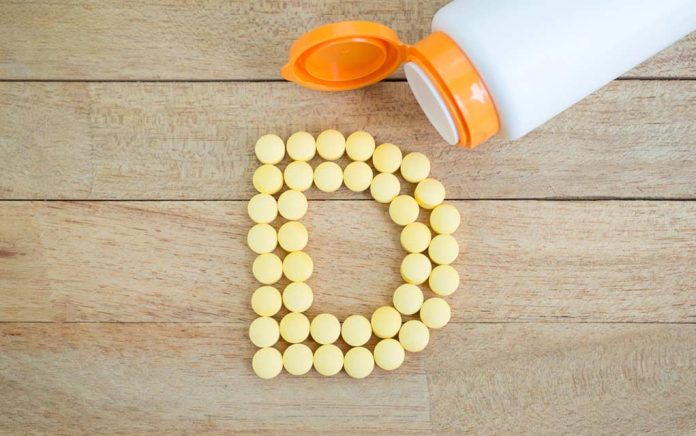
(HealthyResearch.com) – We hear a lot about vitamin D deficiency, but what happens if we get too much? The two most natural and best sources of vitamin D don’t easily lend themselves to allowing us to build up the reserve we need. That’s where supplementation comes in. However, it is possible to get too much vitamin D, and when we do, there are some clear side effects. Read on to learn more.
Vitamin D Toxicity and Dosage Recommendations
Fatty fish and sunlight exposure are, hands-down, the best ways to get vitamin D. But most people don’t eat enough fatty fish in their diets to provide good vitamin D stores, and with tinted windows, sunscreen and spending most of our time indoors, most of us don’t get the sun exposure necessary to make enough of our own vitamin D.
Because vitamin D deficiency is common, supplements have become popular to correct deficiencies. But how do we know how much to take? How much is too much?
Vitamin D is a fat-soluble vitamin. So unlike some vitamins, it doesn’t just flush through the body. Instead, it can build up levels. At the extreme, vitamin D toxicity occurs. The amount necessary to get to that point differs for each person, so there is no “one size fits all”, recommended dosage of vitamin D.
To find out what dose of vitamin D is right for you, you should consult with your healthcare provider. They will likely test to find your current levels before making recommendations. Vitamin D supplements should only be taken by individuals who have tested deficient. When taken by those who are not deficient, vitamin D supplements can increase the risk of toxicity. Fortunately, vitamin D toxicity tends to be rare.
10 Vitamin D Toxicity Side Effects
Toxicity does not occur from natural sources alone. It only seems to occur if supplements have been taken long-term or if more than the recommended dose is consumed.
Symptoms of toxicity can include:
- Vomiting, nausea, and stomach pain
- Constipation or diarrhea
- Fatigue, dizziness, and confusion
- Excessive thirst
- Frequent urination
- High blood calcium levels
- Poor appetite
- Kidney failure
- Irregular heartbeat
- Bone loss, fractures
Toxicity from vitamin D can be quite serious. Talk with your healthcare provider if you feel you are suffering from any of these symptoms and have been supplementing with vitamin D2 or D3. Generally, up to 4000 IU daily is considered safe for someone who is deficient, as long as blood levels are being monitored. Be certain to purchase from a reputable supplement manufacturer or ask your doctor for a prescription.
~Here’s to Your Health & Safety!
Copyright 2021, HealthyResearch.com
















